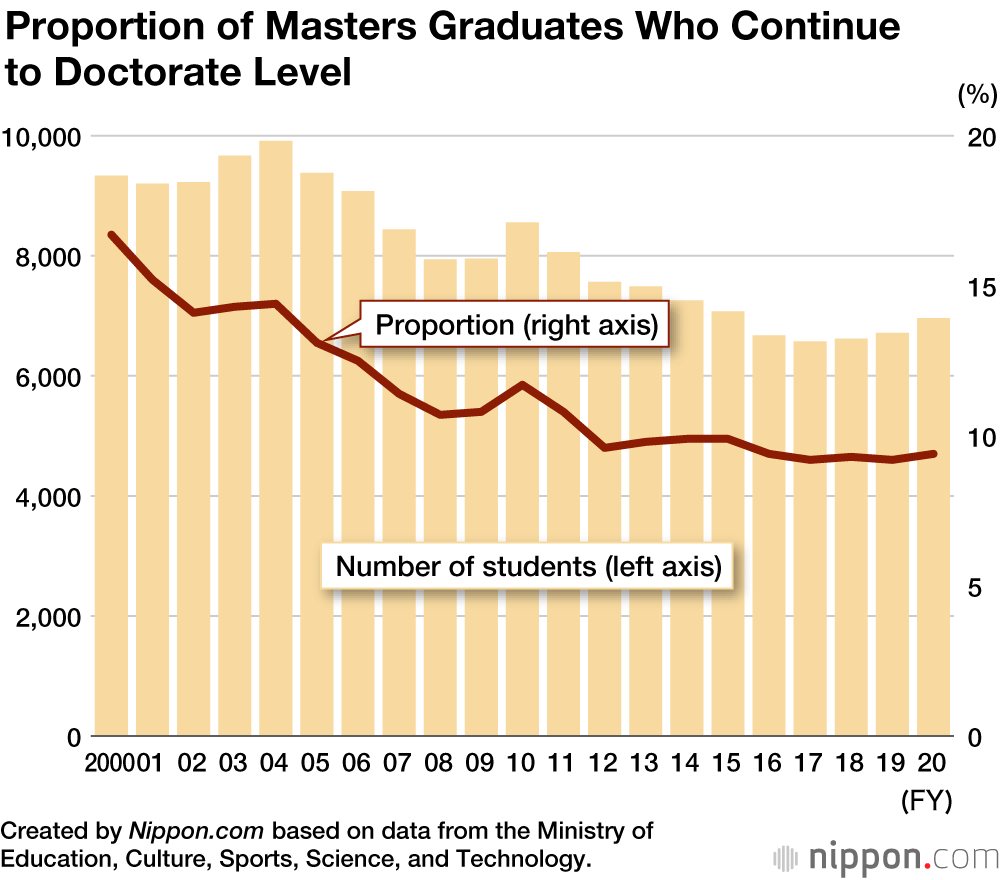
The Highly Educated Working Poor: Debt Common Among Japan’s Graduate Students
Society Education Economy- English
- 日本語
- 简体字
- 繁體字
- Français
- Español
- العربية
- Русский
According to a survey conducted by Japan’s Ministry of Education, Culture, Sports, Science, and Technology’s National Institute of Science and Technology, 35.9% of graduate students who completed their master’s degree in 2020 had loan-based scholarships and other debts that they were required to repay. Around half of these, or 16.5% of the overall total, owed more than ¥3 million.
By field, more than 40% of people who studied science, engineering, and agriculture had debts. Of particular note was health, which includes medical, dental, and pharmaceutical studies, where 22.9% of students had debts of more than ¥3 million.
In 2000, the rate of graduate students who went on to do doctorates peaked at 16.7% and has been falling ever since, hitting 9.4% in 2020. This is thought to be due to financial reasons.
Even if students do complete their doctorate, the number of university posts are limited, so they are not assured of becoming a professor or associate professor. The problem of highly educated working poor, who are forced to lead unstable lives, taking on temporary assignment research positions, is becoming a social issue. Meanwhile, companies are not taking an active interest in hiring people holding doctorates and there is very little difference in their treatment based on academic level.
When respondents were asked why they had chosen to go into employment instead of continuing on to a doctorate, the main reasons given were that they wanted to “become a working member of society” or “be financially independent,” with more than 60% each saying so. In contrast, 38.3% said “continuing to a doctorate doesn’t have good financial prospects” while 30.6% felt the “increase in lifetime earnings for a doctorate doesn’t match the cost,” giving a clear indication of worries over financial insecurity.
When asked for their perspective as current graduate students on what they thought would be effective policies to increase the number of students entering doctoral programs, the most common responses were to “provide grants for doctoral programs,” “improve the research environment for young researchers,” and “improve salaries and other benefits for doctoral graduates in industry.”
(Translated from Japanese. Banner photo © Pixta.)


